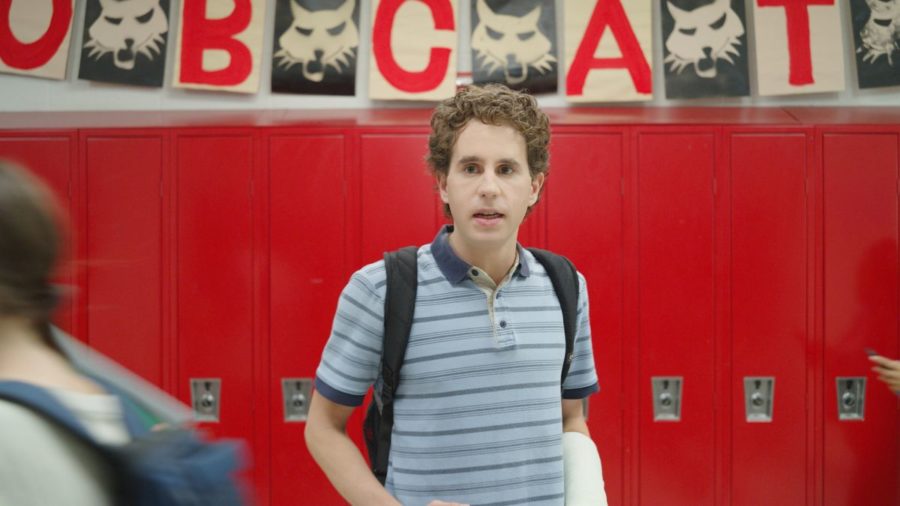Goodbye Evan Hansen
Words Fail—to describe how bad the adaptation of the Tony Award-winning Broadway musical Dear Evan Hansen is. The movie premiered last Friday, Sept. 24 and is available in theaters everywhere. Don’t get me wrong, I love the Broadway musical – I’ve watched bootlegs countless times and ritually listen to the songs- but when the show made its debut from the stage onto the big screen, everything that was good about the musical disappeared (ironically, the song “Disappear” being one of them).
The plot follows high school senior Evan Hansen (Ben Platt), who struggles with social anxiety and depression and has a crush on a junior named Zoe Murphy (Kaitlyn Dever). He writes a letter addressed to himself, signed, “Your best and most dearest friend, Me” for an assignment given to him by his therapist. Evan prints the letter at school, but before he can take it, Zoe’s brother, Connor Murphy (Colton Ryan) reads it. Upon seeing his sister’s name mentioned in the letter, Connor gets mad and storms off with the note in his pocket, not to be heard from again. A couple days later, Connor’s mother and step-father show up at school with Evan’s letter (the one addressed to himself), thinking it is Connor’s suicide note. The story moves on from there, with Evan creating lies to keep up the ruse of Connor’s best friend, going as far constructing fake emails between Connor and himself.
The first mistake that the production made was in casting. At 27-years-old, Platt plays a 17-year-old, his face caked in make-up. Although his body language is good at portraying an awkward teen, the noticeable difference between his age and the rest of the cast made every situation he was in uncomfortable and out of place.
Platt isn’t the only cast member playing someone ten years younger than his actual age; Ryan, 26-years-old, plays Connor, but the age gap wasn’t as noticeable for him because Connor’s physical presence in the film is short lived. Unlike Platt, Ryan doesn’t keep showing up on screen to remind you that you’re not actually watching teens play teens.
Another casting issue was the casting directors’ prioritization of big names over singing ability. I absolutely love all the songs in the Broadway musical, but could not bring myself to enjoy any of the songs in the movie. I recognize that the actors were singing live while filming, which is no doubt hard to do, but even in the studio-recorded versions, the only voice I can listen to without cringing is Platt’s.
Adding to the list of failed attempts was the filming style. A lot of the movie was shot with one character’s face as the focus in front of a blurred background, and there were a lot of jump cuts within the same scene. Maybe this is a personal preference, but I thought the movie spent too much time filming up close and singling out each character’s face when they were talking. It felt like I was just a little too close to the actors, especially when they looked into the camera.
One thing that the movie did differently from the musical was that it took out a few songs and extended the ending. I’m upset that the producers took out what I think to be the best songs in the show (“Anybody have a Map?,” “Good For You,” “Disappear,” and “Break In a Glove”), at least they included the first two as instrumentals at the start of the movie when the Jazz Band played in the gym. They also replaced “Disappear” with a new song called “Anonymous Ones,” sung by Amandla Stenberg, who plays Evan’s classmate Alana Beck.
The song brought light to those who are burdened with struggles like anxiety or depression (like Evan and Alana), but something that stood out to me was how Alana asked Evan about his medications. The idea behind including this scene was to show that it’s okay not to be “perfect,” but the way Alana asked Evan about his diagnoses seemed a little invasive and not the best way to bring up the topic of mental health.
To touch on the changed ending, I liked how they made Evan take responsibility for his actions (unlike the musical, in which Evan’s lies were brushed aside by the Murphys), but there were still no major repercussions for Evan. The movie wanted us to believe that after a year of lying, not only to the Murphys, but to millions around the world about being Connor’s only friend (a speech he presented about Connor went viral), no one would care about the fact that they actually never knew each other. There was a “hazing period” where everyone went back to not talking to Evan, but other than being shunned by his classmates and ignored by the Murphys, Evan never really received the weight of the consequences that should come with what he did. The most that Evan did to try to “make up” for how he lied was to reach out to people online who actually knew Connor to hear real stories and watch videos of what Connor was like.
I guess for anyone who hasn’t seen the musical and can forgive the awkward acting, Dear Evan Hansen isn’t terrible. But for me, the stage-to-movie adaptation missed the mark too many times to be rewatched. If you ask me, your money is better spent paying hundreds to go to a theater to watch the musical.
Happy, free, confused and lonely in the best way.



